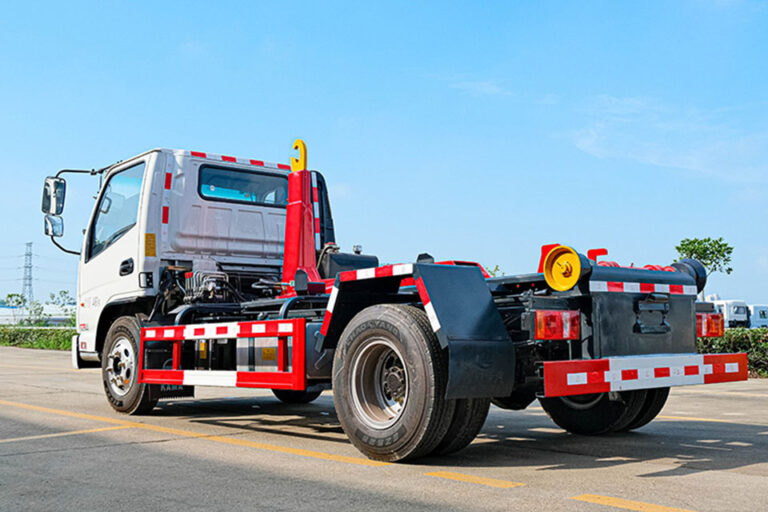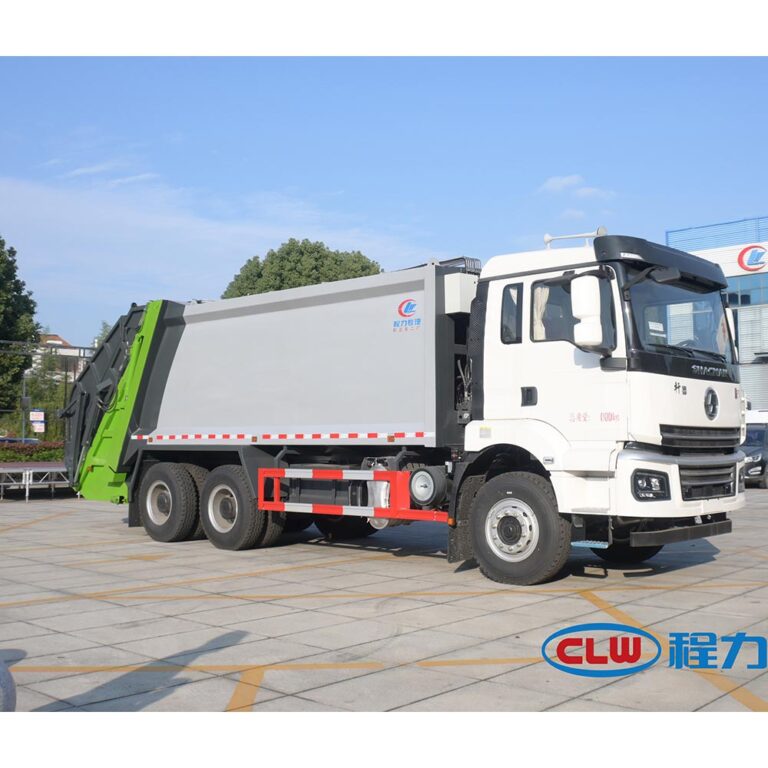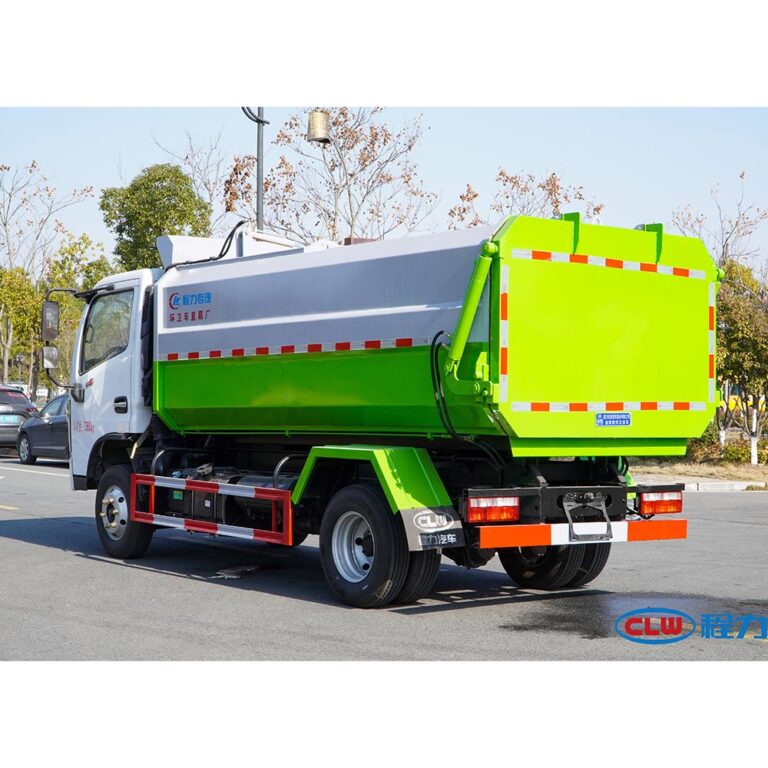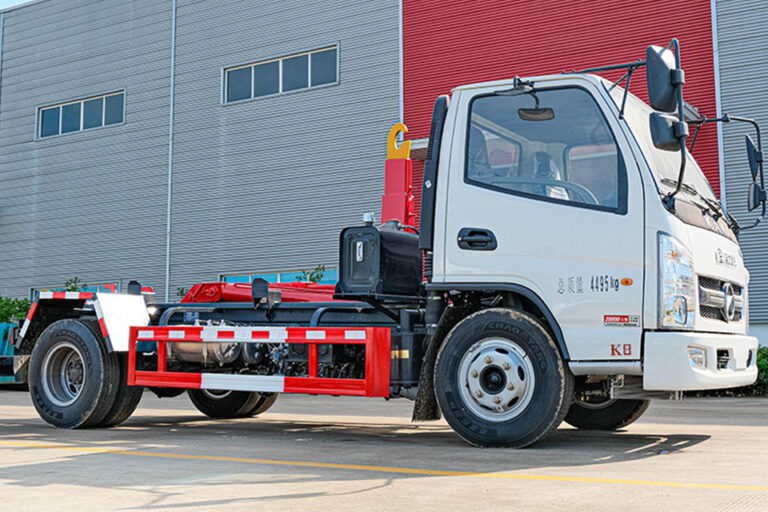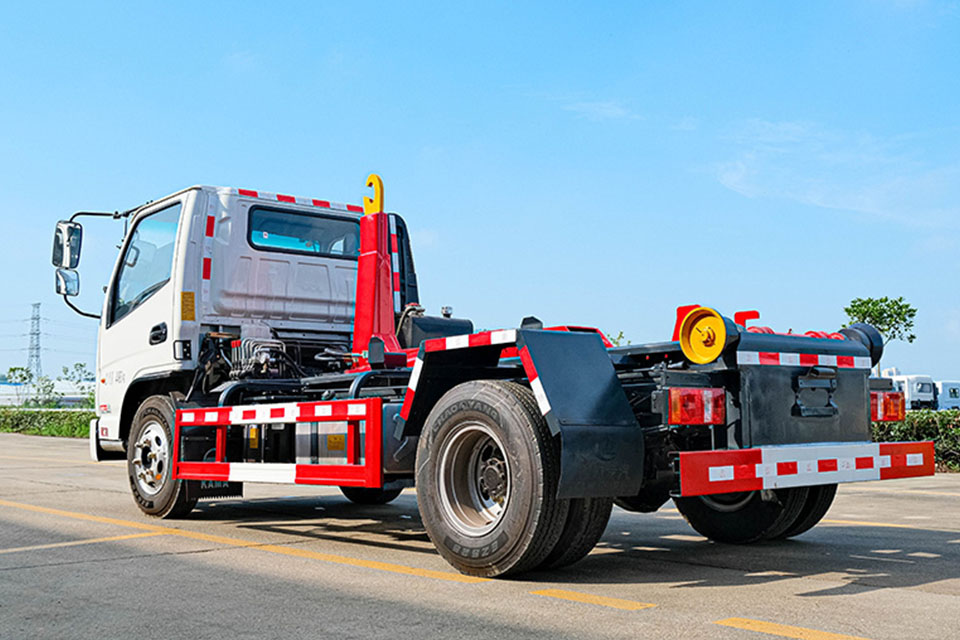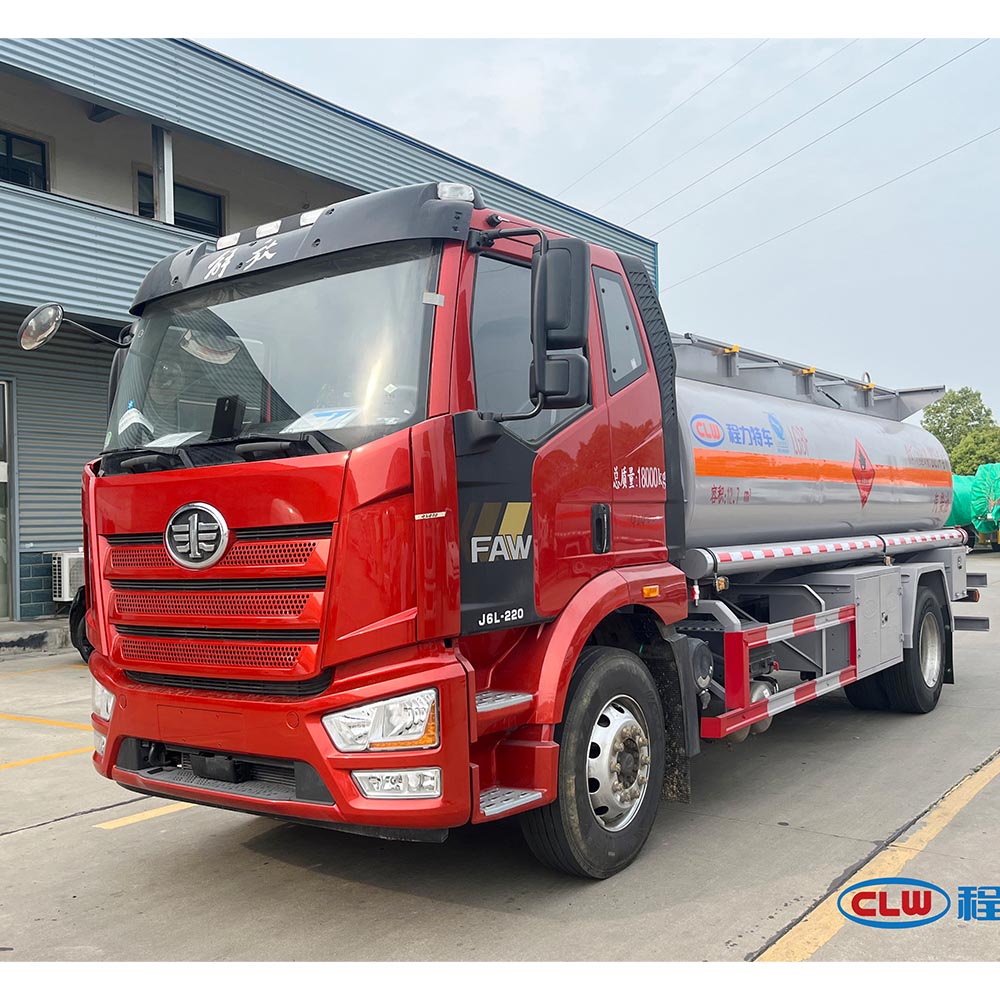-
مجمع تشنغلي الصناعي للسيارات
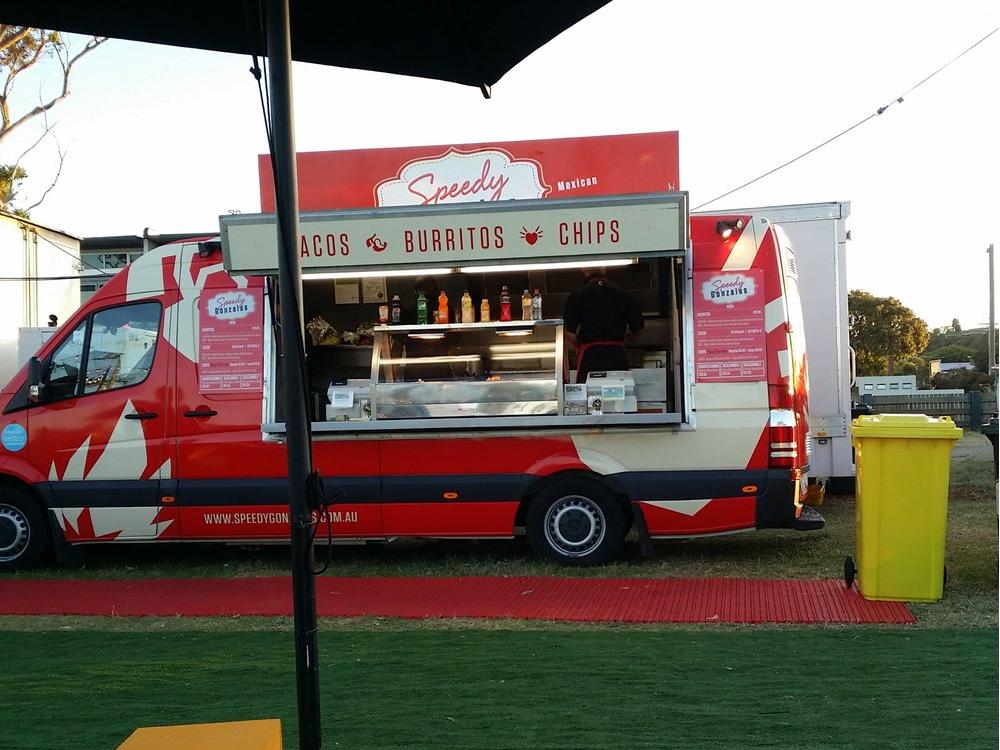
كيف تقوم شاحنات الطعام بالإعلانات
أحدث ثورة في علامتك التجارية مع هذه الأفكار المبتكرة لتسويق شاحنات الطعام
يستكشف هذا المقال العالم الديناميكي لـ شاحنة طعام في السوق ويوفر دليلاً شاملاً لفعالية أفكار تسويق شاحنات الطعام. سواء كنت تستهدف شركات تخطيط الفعاليات الكبيرة أو وكالات الإعلان أو حتى الوكالات الحكومية، فإن هذه القراءة ستزودك بالمعرفة والاستراتيجيات اللازمة للارتقاء أعمال شاحنات الطعام وتحفيز مشاركة العملاء. إذا كنت ترغب في تعلم كيفية تسويق شاحنة الطعام الخاصة بك، تقدم هذه المقالة رؤى ونصائح عملية لا تقدر بثمن، مما يجعلها تستحق وقتك.
جدول المحتويات
1. ما هو الوضع الحالي لسوق شاحنات الطعام؟
إن سوق شاحنات الطعام قد شهدت نموًا هائلاً في السنوات الأخيرة، حيث تحولت من قطاع متخصص إلى قوة طهي رئيسية. واعتبارًا من عام 2023، فإن شاحنة طعام بلغت قيمة هذه الصناعة $4.5 مليار دولار، وتشير التوقعات إلى أنها قد تصل إلى $6.8 مليار دولار بحلول عام 2028. ويُعزى هذا الارتفاع إلى عدة عوامل، بما في ذلك تطور تفضيلات المستهلكين لتجارب تناول الطعام الفريدة والمريحة، وظهور طعام الشارع الثقافة، وانخفاض تكاليف بدء التشغيل نسبياً مقارنةً بالمطاعم التقليدية.
وباعتبارنا مصنعاً لتصنيع شاحنات الدعاية والإعلان، فإننا نفهم الفروق الدقيقة في هذا السوق الديناميكي. تكشف رؤيتنا أن شاحنة طعام يركز المالكون بشكل متزايد على الابتكار استراتيجيات التسويق للتميز في مجال مزدحم. إن شاحنة طعام الصناعة لم تعد تقتصر على خدمة طعام لذيذ؛ يتعلق الأمر بابتكار العلامة التجارية الخبرة. على سبيل المثال، دراسة حالة عن شاحنة طعام في أوستن، تكساس، أظهرت أن دمج الفن والموسيقى المحلية في شاحنة الطعام زاد التصميم والفعاليات من مشاركة العملاء بنسبة 40%.
2. لماذا تعتبر خطة تسويق شاحنة الطعام القوية ضرورية؟
تصميم متقن الصنع خطة تسويق شاحنة الطعام هو حجر الزاوية لأي مشروع ناجح في هذه الصناعة التنافسية. فبدون استراتيجية واضحة، حتى أكثر شاحنة طعام فريدة من نوعها مع أفضل قائمة طعام الشاحنات يمكن أن تكافح لجذب العملاء والاحتفاظ بهم. A استراتيجية تسويق شاحنة الطعام يساعدك على تحديد العلامة التجاريةتعرّف على الجمهور المستهدفوتحديد الخطوات اللازمة للوصول إليها.
تُظهر تجربتنا أن خطة العمل دمج الجهود التسويقية أمر بالغ الأهمية. على سبيل المثال، فإن شاحنة الطعام الجديدة المالك في لوس أنجلوس طوّر مالك في لوس أنجلوس خطة عمل شاحنة الطعام التي شملت التسويق عبر وسائل التواصل الاجتماعي الحملات. وقد أدى هذا النهج إلى زيادة قدرها 30% في قاعدة العملاء خلال الأشهر الستة الأولى. تساعد الخطة المحكمة أيضًا في إدارة ميزانيتك بفعالية. تشير البيانات إلى أن شاحنة طعام يمكن أن يتراوح الإنفاق على التسويق من 51 تيرابايت إلى 151 تيرابايت إلى 151 تيرابايت من إجمالي إيراداتها، اعتمادًا على أهدافها وقدرتها التنافسية. من خلال وجود خطة تسويق شاحنة الطعاميمكنك تحسين إنفاقك لزيادة العوائد إلى أقصى حد.
3. من هو جمهورك المستهدف لمشروع شاحنة الطعام؟
تحديد هوية الجمهور المستهدف هو خطوة حاسمة في تطوير فعالية استراتيجيات التسويق. الفهم التركيبة السكانية لعملاء شاحنات الطعام يساعدك على تخصيص عروضك ورسائلك التسويقية لتتوافق مع العملاء المحتملين. بشكل عام, شاحنة طعام تشمل قائمة المتحمسين جيل الألفية وعشاق الطعام والمحترفين المشغولين الذين يبحثون عن وجبات سريعة وعالية الجودة. ومع ذلك، فإن الجمهور المستهدف يمكن أن تختلف بناءً على نوع الطعام التي تقدمها، وموقعك، و العلامة التجارية الهوية.
بصفتنا خبراء في هذا المجال، لاحظنا أن شاحنة طعام العملاء متنوعون ويمكن أن تشمل
- شركات تنظيم الفعاليات الكبيرة: البحث عن خيارات تقديم الطعام الفريدة للمناسبات.
- الوكالات الإعلانية: البحث عن طرق مبتكرة للترويج للعلامات التجارية من خلال إعلانات الجوال.
- سلاسل البيع بالتجزئة: الاستفادة من شاحنات الطعام للفعاليات الترويجية ومشاركة العملاء.
- المطورون العقاريون: جذب المشترين المحتملين بخيارات الطعام في الموقع.
- وكلاء السيارات: استضافة الفعاليات مع تموين شاحنات الطعام لتعزيز تجربة العملاء.
- سلاسل المطاعم: استخدام شاحنات الطعام كامتدادات متنقلة لعلامتهم التجارية.
- المؤسسات التعليمية: توفير خيارات طعام متنوعة في الحرم الجامعي.
- الوكالات الحكومية والمنظمات غير الربحية: الاستفادة من شاحنات الطعام للمناسبات العامة وبرامج التوعية.
- مناطق الجذب السياحي: تقديم خيارات طعام مريحة ومتنوعة للزوار.
- مقدمو الخدمات المحلية: التعاون مع شاحنات الطعام للمناسبات المحلية.
- بناة العلامات التجارية: الاستفادة من شاحنات الطعام لخلق تجارب فريدة من نوعها للعلامة التجارية.
- مروجو الفعاليات: الدمج شاحنات الطعام في تشكيلات الأحداث.
- محركات المبيعات: استخدام شاحنات الطعام لزيادة المبيعات من خلال العروض الترويجية والعروض الخاصة.
- المستهدفون الجغرافيون: الاستفادة من شاحنات الطعام للتسويق القائم على الموقع الجغرافي.
- الشركات الصغيرة والمتوسطة الحجم (SMEs): التعاون مع شاحنات الطعام للفعاليات والعروض الترويجية المحلية
- الشركات الكبيرة: دمج شاحنات الطعام في فعاليات الشركات والحملات التسويقية.
فهمك الجمهور المستهدف يتيح لك تخصيص الجهود التسويقية لجذب هذه المجموعات المحددة. على سبيل المثال، إذا كنت تلبي احتياجات العاملين في المكاتب، يمكنك أوقف شاحنتك بالقرب من المناطق التجارية خلال ساعات الغداء وتقديم عروض سريعة, طعام عالي الجودة الخيارات.
4. كيف يمكن للتسويق عبر وسائل التواصل الاجتماعي تعزيز شاحنة الطعام الخاصة بك؟
التسويق عبر وسائل التواصل الاجتماعي أداة قوية ل شاحنة طعام المالكين للتواصل مع جمهورهم وبناء حضور قوي على الإنترنت. تسمح لك منصات مثل إنستغرام وفيسبوك وتويتر بعرض طعام لذيذومشاركة موقعك الجغرافي، والتفاعل مع العملاء في الوقت الفعلي. استخدام منصات التواصل الاجتماعي بشكل فعال يمكن أن يعزز ظهورك بشكل كبير و جذب العملاء إلى شاحنة طعام.
لقد رأينا كيف أن التواجد على وسائل التواصل الاجتماعي يمكن أن يحول شاحنة طعام الأعمال. على سبيل المثال، استخدام صور جذابة لـ طعام جديد العناصر ومشاركة محتوى من وراء الكواليس يمكن أن يخلق ضجة كبيرة. إجراء المسابقات والعروض الترويجية، مثل "ضع علامة على صديق لتربح طعام مجاني"،" يمكن أيضًا زيادة المشاركة وجذب عملاء جدد. تحديث متابعيك بانتظام عن موقعك وأي عروض خاصة أمر حيوي. A شاحنة طعام النشطة على وسائل التواصل الاجتماعي من المرجح أن يتم اكتشافها من قبل عشاق عربات الطعام يبحثون عن وجبتهم التالية.
5. ما هي بعض الأفكار التسويقية الفريدة لشاحنات الطعام؟
في مكان مزدحم سوق شاحنات الطعامالإبداع هو مفتاح التميز فريد من نوعه أفكار تسويقية لعربات الطعام أن تساعدك على التمييز بين العلامة التجارية وجذب متابعين مخلصين. فكّر في تقديم قوائم طعام ذات طابع خاص أو استضافة فعاليات منبثقة أو عقد شراكات مع فنانين محليين لإنشاء هوية بصرية فريدة لشاحنتك.
فيما يلي 10 أفكار لتسويق شاحنات الطعام لإلهامك
- ابتكر طبقاً مميزاً: تطوير طبق فريد من نوعه يصبح مرادفاً لـ العلامة التجارية.
- تقديم برامج الولاء: مكافأة العملاء المتكررين بخصومات أو طعام مجاني.
- استضافة فعاليات ذات طابع خاص: تنظيم فعاليات حول العطلات أو المهرجانات المحلية أو مواضيع الطهي.
- التعاون مع المؤثرين: الشراكة مع مدونو الطعام والمؤثرين على وسائل التواصل الاجتماعي للترويج لـ شاحنة طعام.
- استخدام المسابقات التفاعلية: قم بإشراك جمهورك من خلال المسابقات والهدايا على وسائل التواصل الاجتماعي.
- تقديم خدمة الطلب عبر الجوال: تنفيذ تطبيق شاحنة الطعام للطلب والاستلام المريح.
- إنشاء هوية مرئية قوية: استثمر في الرسومات والتصميم اللافت للنظر لشاحنتك.
- المشاركة في مهرجانات الطعام: عرض عروضك على المستوى المحلي والإقليمي مهرجانات الطعام.
- تقديم خدمات تقديم الطعام: وسّع نطاق وصولك من خلال تقديم تموين شاحنات الطعام للمناسبات الخاصة
- الانخراط مع المجتمع: رعاية الفعاليات المحلية والمشاركة في الأنشطة المجتمعية.
6. كيف تستفيد من الشركات والفعاليات المحلية لجذب العملاء؟
التعاون مع الشركات المحلية والمشاركة في الفعاليات يمكن أن يوسع نطاق وصولك بشكل كبير و جذب العملاء إلى شاحنة طعام. يمكن أن تؤدي الشراكة مع شركات مثل مصانع الجعة أو المقاهي أو متاجر البيع بالتجزئة إلى إقامة علاقات مفيدة للطرفين. على سبيل المثال، يمكنك أوقف شاحنتك خارج أحد مصانع الجعة المحلية الشهيرة في عطلات نهاية الأسبوع، مما يجذب زبائنهم ويجلب أيضاً زبائن جدد إلى مصنع الجعة.
المشاركة في الفعاليات المحلية، مثل أسواق المزارعين والحفلات الموسيقية و مهرجانات الطعامهي طريقة فعالة أخرى لزيادة الظهور. توفر هذه الفعاليات فرصة لعرض شاحنة طعام إلى جمهور كبير والتواصل مع شاحنة طعام المشغلون. من خلال اختيار مواقعك وفعالياتك بشكل استراتيجي، يمكنك زيادة ظهورك إلى أقصى حد وزيادة قاعدة العملاء.
7. ما أهمية هوية العلامة التجارية لشاحنة الطعام الخاصة بك؟
قوي العلامة التجارية الهوية ضرورية لأي شاحنة طعام تتطلع إلى النجاح في سوق تنافسية أنت العلامة التجارية يشمل اسمك وشعارك وتصميمك وقائمة طعامك وتجربة العملاء بشكل عام. هذا ما يميزك عن غيرك من شاحنات الطعام ويخلق انطباعًا دائمًا لدى عملائك.
الاستثمار في العلامة التجارية الاحترافية يمكن أن يؤثر بشكل كبير على نجاحك. يمكن للشعار المصمم بشكل جيد، وغطاء الشاحنة الجذاب، والمظهر المتماسك أن يجعل شاحنة طعام أكثر تميزاً وجاذبية. أنت العلامة التجارية لشاحنة الطعام يجب أن تعكس جودة ونوع الطعام الذي تقدمه، بالإضافة إلى الجمهور المستهدف التفضيلات. على سبيل المثال شاحنة طعام قد تختار الشاحنات المتخصصة في البرغر الذواقة تصميمًا أنيقًا وعصريًا، بينما قد تختار الشاحنة التي تقدم الطعام التقليدي المريح مظهرًا أكثر ريفية وحنينًا إلى الماضي.
8. كيف يمكن للتكنولوجيا وتطبيق شاحنة الطعام تعزيز جهودك التسويقية؟
يمكن أن يؤدي استخدام التكنولوجيا إلى تعزيز استراتيجية تسويق شاحنة الطعام. تطوير مخصص تطبيق شاحنة الطعام تبسيط عملية الطلب، وتحسين خدمة العملاء، وتوفير رؤى قيِّمة للبيانات. يتيح التطبيق للعملاء عرض قائمة الطعام، وتقديم الطلبات، وإجراء عمليات الدفع، وتتبع موقعك في الوقت الفعلي.
بالإضافة إلى ذلك، فإن تطبيق شاحنة الطعام يمكن دمجها مع برامج الولاء، مما يسمح لك بمكافأة العملاء المتكررين وجمع البيانات عن تفضيلاتهم. يمكن لهذه البيانات أن تفيدك في الجهود التسويقيةمما يساعدك على تخصيص العروض الترويجية والعروض لتلبية احتياجات العملاء بشكل أفضل. يمكن للتكنولوجيا أيضًا تحسين الكفاءة التشغيلية. على سبيل المثال، يمكن أن يؤدي استخدام نظام نقاط البيع المتنقلة إلى تسريع المعاملات وتقليل أوقات الانتظار، مما يعزز تجربة العملاء بشكل عام.
9. ما هو الدور الذي تلعبه مواد التسويق التقليدية في الترويج لشاحنة الطعام؟
في حين أن التسويق الرقمي أمر بالغ الأهمية، إلا أن التسويق التقليدي المواد التسويقية لا تزال تلعب دورًا حيويًا في تعزيز شاحنة طعام. أدوات التسويق المادي، مثل نشرة إعلانيةوبطاقات العمل ولوحات قوائم الطعام، يمكن أن تساعدك في الوصول إلى العملاء الذين قد لا يكونون نشطين على وسائل التواصل الاجتماعي. توزيع نشرة إعلانيةفي المناطق ذات الازدحام الشديد، وترك بطاقات العمل في الشركات المحلية، وعرض لوحة قائمة طعام واضحة وجذابة على شاحنتك يمكن أن جذب الناس إلى طعامك.
يمكن أن يكمل التسويق التقليدي جهودك الرقمية. على سبيل المثال، يمكنك تضمين مقابض وسائل التواصل الاجتماعي والموقع الإلكتروني الخاص بك على نشرة إعلانيةوبطاقات العمل، مما يشجع العملاء على التواصل معك عبر الإنترنت. بالإضافة إلى ذلك، فإن وجود تصميم احترافي المواد التسويقية يمكن أن يعزز العلامة التجارية الصورة وجعل شاحنة طعام أكثر قابلية للذكرى
10. كيف تجعل استراتيجيتك التسويقية مستدامة وفعالة؟
تطوير نظام مستدام و استراتيجية تسويق فعالة يتطلب جهداً وتكيّفاً مستمرين. راجع بانتظام الجهود التسويقية لتقييم ما ينجح وما لا ينجح. استخدم البيانات وملاحظات العملاء لتحسين نهجك وإجراء التعديلات اللازمة.
إليك بعض النصائح لإنشاء استراتيجية تسويق مستدامة:
- تحديد أهداف واضحة: حدد أهدافًا محددة وقابلة للقياس وقابلة للتحقيق وذات صلة ومحددة زمنيًا (SMART) لحملاتك التسويقية.
- مراقبة الأداء: تتبع المقاييس الرئيسية، مثل مشاركة العملاء، والمبيعات، وحركة المرور على الموقع الإلكتروني، لتقييم فعالية الجهود التسويقية.
- جمع الملاحظات: جمع التعليقات من العملاء من خلال الاستبيانات ووسائل التواصل الاجتماعي والتفاعلات المباشرة لفهم تفضيلاتهم وتحسين عروضك.
- ابق على اطلاع: مواكبة أحدث الاتجاهات والابتكارات في شاحنة طعام الصناعة للبقاء في صدارة المنافسة.
- التكيف والابتكار: كن على استعداد لتجربة كل ما هو جديد أفكار تسويقية وتكييف استراتيجيتك بناءً على النتائج التي توصلت إليها.
الأسئلة الشائعة
ما هي أكثر قنوات التسويق فعالية لشاحنة الطعام؟
الأكثر استراتيجيات التسويق الفعالة لـ شاحنة طعام غالبًا ما تتضمن مزيجًا من الأساليب الرقمية والتقليدية. منصات التواصل الاجتماعي مثل Instagram و Facebook ممتازان للتفاعل مع جمهورك ومشاركة التحديثات. التسويق عبر البريد الإلكتروني مساعدتك في إنشاء قائمة بـ العملاء الأوفياء والترويج للعروض الخاصة. بالإضافة إلى ذلك، فإن المشاركة في الفعاليات المحلية وتوزيع المواد الإعلانية المواد التسويقية مثل نشرة إعلانيةيمكن أن تكون فعالة جدًا أيضًا. يمكن أن يساعدك الجمع بين هذه القنوات في الوصول إلى جمهور أوسع وتسهيل وصول الناس إلى اعثر على شاحنة الطعام الخاصة بك.
كيف يمكنني جذب المزيد من العملاء إلى شاحنة الطعام الخاصة بي؟
إلى جذب الزبائن إلى شاحنة الطعام الخاصة بك، التركيز على إنشاء العلامة التجارية والعرض طعام عالي الجودة. استخدم التسويق عبر وسائل التواصل الاجتماعي لعرض قائمتك ومشاركة موقعك. تفاعل مع الشركات المحلية والمشاركة في الفعاليات المجتمعية لزيادة الظهور. يمكن أيضًا أن يؤدي تقديم العروض الترويجية والخصومات وبرامج الولاء إلى إغراء عملاء جدد وجعلهم يعودون مرة أخرى. بالإضافة إلى ذلك، تأكد من أن شاحنة طعام جذابة بصرياً ويسهل اكتشافها.
ما الذي يجب أن أدرجه في خطة عمل شاحنة الطعام الخاصة بي؟
أنت خطة عمل شاحنة الطعام يجب أن تتضمن نظرة عامة مفصلة عن مفهومك, الجمهور المستهدفو استراتيجية التسويق. حدد قائمة الطعام والتسعير والخطة التشغيلية، بما في ذلك كيفية الحصول على المكونات وإدارة العمليات اليومية. قم بتضمين التوقعات المالية، مثل تكاليف بدء التشغيل ونفقات التشغيل وتوقعات الإيرادات. خطة مدروسة جيداً خطة العمل سوف يرشدك مشروع شاحنة الطعام ومساعدتك في تأمين التمويل إذا لزم الأمر.
ما مدى أهمية وسائل التواصل الاجتماعي لشاحنة الطعام؟
التسويق عبر وسائل التواصل الاجتماعي مهم للغاية بالنسبة إلى شاحنة طعام. يسمح لك بالاتصال مباشرة مع قاعدة العملاءومشاركة تحديثات حول موقعك، والترويج لقائمتك. محتوى جذاب، مثل صور طعام لذيذ ولمحات من وراء الكواليس عن عملياتك، يمكن أن تجذب العملاء المحتملين. كما توفر وسائل التواصل الاجتماعي أيضًا منصة لإجراء المسابقات وجمع آراء العملاء، مما يساعدك على بناء عميل مخلص القاعدة.
ما هي بعض الأخطاء الشائعة التي يرتكبها أصحاب شاحنات الطعام في التسويق؟
بعض الأخطاء الشائعة شاحنة طعام في التسويق إهمال وجودهم على الإنترنت، وعدم التفاعل مع جمهورهم، وعدم وجود خطة واضحة العلامة التجارية الهوية. من الضروري تحديث وسائل التواصل الاجتماعي الخاصة بك بانتظام، والرد على استفسارات العملاء، وإنشاء العلامة التجارية الخبرة. بالإضافة إلى ذلك، قد يؤدي عدم المشاركة في الفعاليات المحلية أو التعاون مع الشركات الأخرى إلى الحد من انتشارك. يمكن أن يساعدك تجنب هذه الأخطاء على تسويق شاحنة الطعام الخاصة بك بشكل أكثر فعالية.
كيف يمكنني أن أجعل شاحنة الطعام الخاصة بي تبرز في سوق مزدحم؟
لجعل شاحنة طعام تبرز، ركز على إنشاء شاحنة طعام فريدة من نوعها مفهوم وتقديم مفهوم استثنائي طعام الشارع. تطوير العلامة التجارية هوية بشعار لا يُنسى وتصميم جذاب للشاحنة. تقديم قائمة طعام فريدة من نوعها مع طعام عالي الجودة التي تميزك عن المنافسين استفد من الإبداع أفكار تسويقيةمثل الفعاليات ذات الطابع الخاص والتعاون مع المؤثرين المحليين. إن تقديم خدمة عملاء ممتازة والتفاعل مع جمهورك عبر الإنترنت يمكن أن يساعدك أيضًا على بناء متابعين مخلصين وتمييز شاحنة طعام.
المصادر
- جراند فيو للأبحاث. (2023). تقرير تحليل حجم سوق شاحنات الطعام وحصتها واتجاهاتها. مأخوذ من https://www.grandviewresearch.com/industry-analysis/food-trucks-market
- IBISWorld. (2023). صناعة شاحنات الطعام في الولايات المتحدة - تقرير أبحاث السوق. مأخوذ من https://www.ibisworld.com/united-states/market-research-reports/food-trucks-industry/
الخاتمة
- إن شاحنة طعام السوق صناعة سريعة النمو ذات إمكانات هائلة لأولئك الذين يستطيعون بفعالية تسويق شاحنة الطعام الخاصة بهم.
- تصميم متقن الصنع خطة تسويق شاحنة الطعام ضروري للنجاح، مما يساعدك على تحديد العلامة التجاريةتعرّف على الجمهور المستهدف، وحدد الخطوط العريضة لـ استراتيجيات التسويق.
- فهمك الجمهور المستهدف وتخصيص الجهود التسويقية لتفضيلاتهم أمر بالغ الأهمية لجذب العملاء والاحتفاظ بهم.
- التسويق عبر وسائل التواصل الاجتماعي أداة قوية للتواصل مع جمهورك، وبناء حضور قوي على الإنترنت، وزيادة مشاركة العملاء.
- فريد من نوعه أفكار تسويقيةمثل الفعاليات ذات الطابع الخاص والتعاون مع المؤثرين والمسابقات التفاعلية التي يمكن أن تساعدك على شاحنة طعام تبرز في سوق مزدحم.
- الاستفادة من الشركات المحلية والفعاليات يمكن أن توسع نطاق وصولك بشكل كبير وتجذب عملاء جدد إلى شاحنة طعام.
- قوي العلامة التجارية الهوية التي تشمل اسمك وشعارك وتصميمك وقائمة الطعام وتجربة العملاء، أمر ضروري لخلق انطباع دائم.
- تبني التكنولوجيا، مثل تطوير تطبيق شاحنة الطعاميمكنها تبسيط العمليات، وتحسين خدمة العملاء، وتقديم رؤى قيّمة حول البيانات.
- تقليدي المواد التسويقيةمثل نشرة إعلانيةوبطاقات العمل، لا تزال تلعب دورًا حيويًا في الترويج لـ شاحنة طعام والوصول إلى جمهور أوسع.
- تطوير نظام مستدام و استراتيجية تسويق فعالة يتطلب جهدًا مستمرًا وتكيفًا واستعدادًا للابتكار.
لأولئك الذين يتطلعون إلى ترك بصمة في شاحنة طعام الصناعة، فكر في استكشاف سياراتنا المتخصصة مثل شاحنة إعادة التزود بالوقود عالية السعة من الصلب الكربوني أو شاحنة نقل زيت الطعام. توفر هذه الشاحنات فرصاً فريدة للشركات التي تهدف إلى توسيع نطاق عملياتها المتنقلة. بالإضافة إلى ذلك، فإن شاحنة زيت سبائك الألومنيوم 25.5 متر مكعب و شاحنة صهريج رمل التكسير سعة 31,000 كجم توفير حلول قوية للاحتياجات المتخصصة. بالنسبة للعاملين في قطاع المناسبات وخدمات تقديم الطعام، فإن شاحنة التزود بالوقود Furika خزان وقود 8.5 متر مكعب، محرك 170 حصان يمكن أن يغير قواعد اللعبة.

